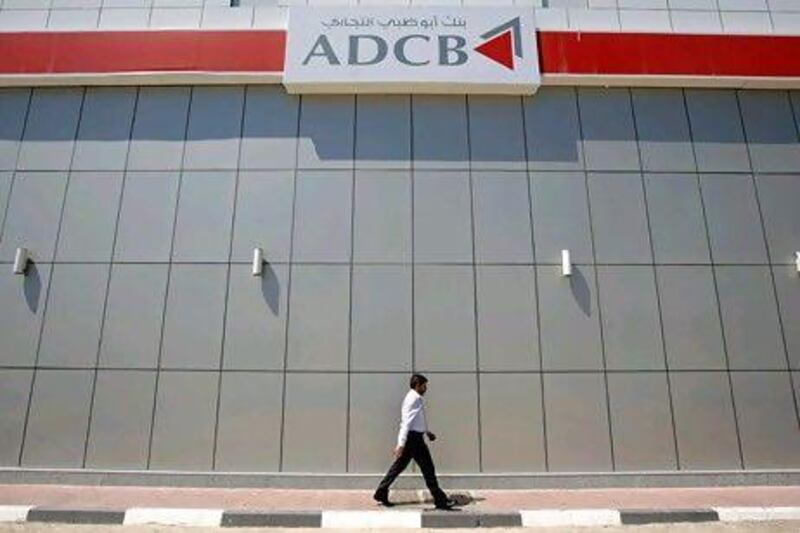So far so good, but why not better? Investors are wondering whether tentative signs of recovery in the UAE's banking sector will signal accelerating strides for local stocks towards the more fleet-footed gains on global markets this week.
The Dubai Financial Market General Index advanced 5.8 per cent last week, the highest weekly gains for the index since March. The value of stocks traded on the emirate's exchange was double a week earlier as trading activity returned, putting the index on track for its best month since April last year.
Big lenders led much of the gains last week as they revealed their profits for last year. Abu Dhabi Commercial Bank and RAKBank reported strongly improved earnings last week, although Commercial Bank of Dubai's profits stagnated.
Dubai Islamic Bank, First Gulf Bank and the National Bank of Abu Dhabi are all due this week to report earnings for last year. Banks in Abu Dhabi are expected to reveal improved growth as provisions for the Emirates' debt worries of the past few years start to recede, although Dubai's lenders are still expected to feel the pain of provisioning for bad debts.
The good news for local traders comes as signs of recovery appear in the US. The world's largest economy grew at a rate of 2.8 per cent in the fourth quarter of last year, its fastest pace in more than a year.
The increase in optimism is being felt across the region.
"Worldwide, things seem to be improving - in the US, but also Egypt. Egypt is now up 22.3 per cent year-to-date - that's quite a number," said Saleem Khokhar, the head of equities at the National Bank of Abu Dhabi. The country's stocks have been the best-performing of any country in the world to date this year. However, Mr Khokhar warned that regional investors could pull back at any minute, given the sharp gains seen so far this year. "We may be ahead of ourselves at the moment," he said. But despite strong gains for some Middle East markets, a rally in emerging market stocks has not resulted in a substantial boost for the Gulf's markets.
The MSCI Emerging Market Index has advanced 10.9 per cent since the start of the year to 1,016.61.
During that period, many of the region's indexes - including those in Abu Dhabi, Qatar and Oman - have fallen, while Saudi Arabia's Tadawul All-Share Index has made only slight gains. Nor have the region's industrial titans benefited much. The S&P AFE 40 index of Arab large-cap companies rose only 0.2 per cent during the period.
Despite the gains on many emerging market indexes, twitchiness among investors has not subsided.
A report released by the World Bank last week, which warned that emerging markets were more poorly positioned to withstand a fresh financial crisis than they were after the collapse of Lehman Brothers in 2008, appears to reflect the concerns of many investors.
Increasing worries about emerging markets has led many global investors to pick and choose regions to invest in carefully, said Markus Schomer, the chief economist at PineBridge Investments, which has US$69.5 billion in assets under management.
Some banks that had spent much of the last year cutting lending lines to the Middle East and other regions were now returning, bolstered by moves by the European Central Bank late last year to provide fresh cash.
"It's the withdrawal of liquidity from the global banking sector that's affected emerging markets," he said. "I'd expect you would see some of those flows re-emerging and I'd expect that money to come back."
But investors are eyeing investments in countries where growth is slowing, such as China, with a degree of scepticism, he said.
However, countries where growth is accelerating - such as in the Middle East - may be poised to attract more attention. "What's positive for the UAE in particular is the infrastructure spending and the sticky high price of oil," Mr Schomer added.
A raft of new projects for Abu Dhabi, announced by the Executive Council last week, are also expected to benefit local stocks, especially the property sector, which is beginning to report earnings this week.
* Additional reporting by Hadeel Al Sayegh






